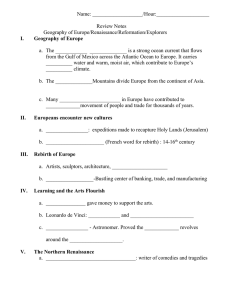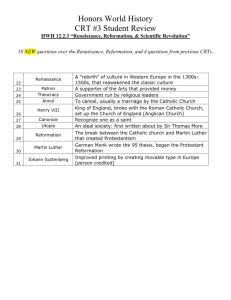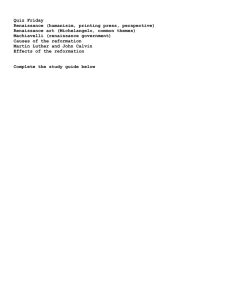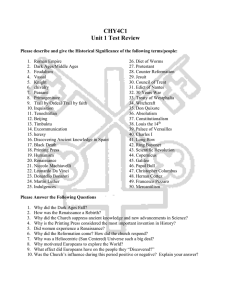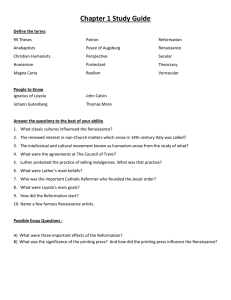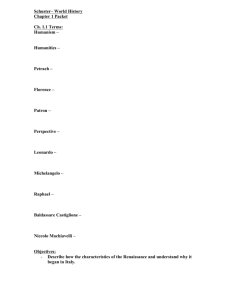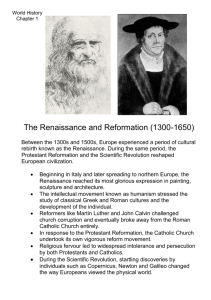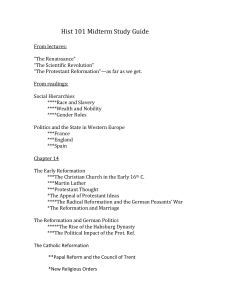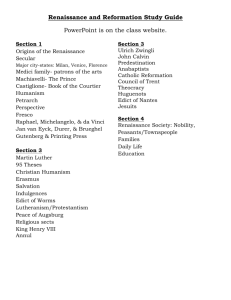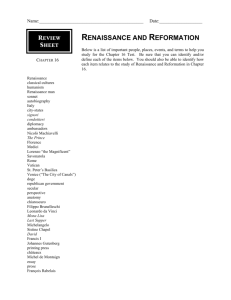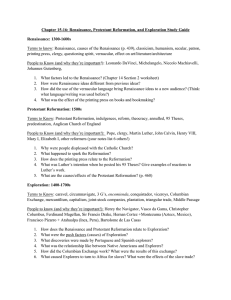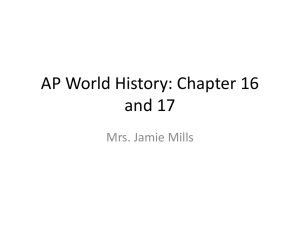File
advertisement
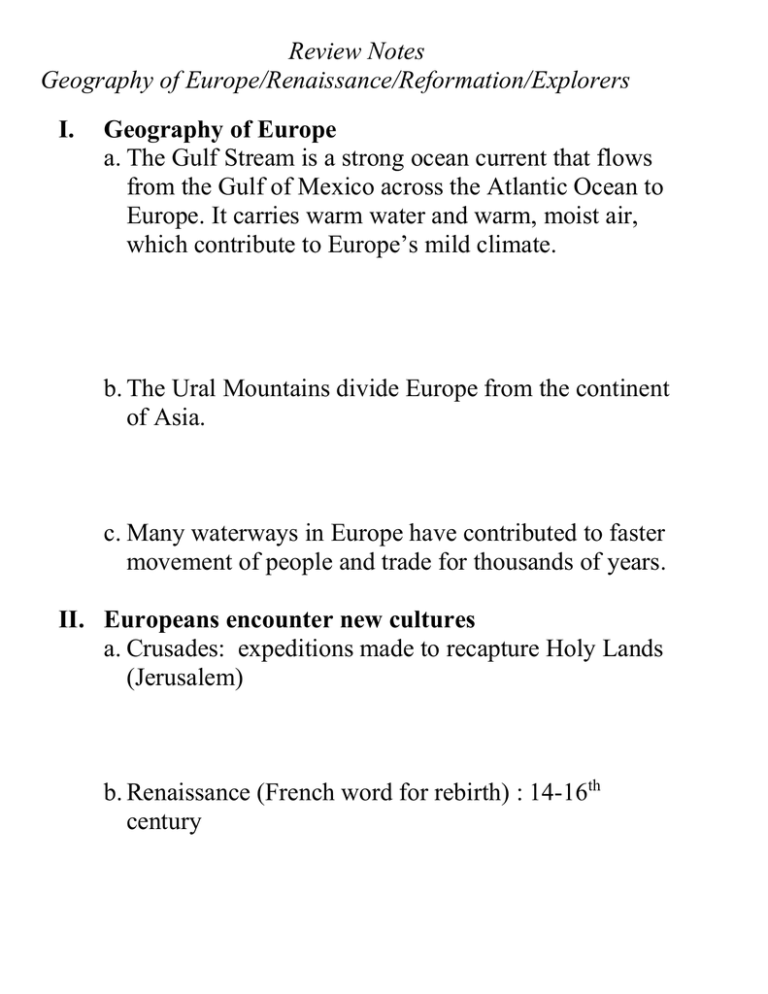
Review Notes Geography of Europe/Renaissance/Reformation/Explorers I. Geography of Europe a. The Gulf Stream is a strong ocean current that flows from the Gulf of Mexico across the Atlantic Ocean to Europe. It carries warm water and warm, moist air, which contribute to Europe’s mild climate. b. The Ural Mountains divide Europe from the continent of Asia. c. Many waterways in Europe have contributed to faster movement of people and trade for thousands of years. II. Europeans encounter new cultures a. Crusades: expeditions made to recapture Holy Lands (Jerusalem) b. Renaissance (French word for rebirth) : 14-16th century III. Rebirth of Europe a. Artists, sculptors, architecture, inventions b. Florence-Bustling center of banking, trade, and manufacturing IV. Learning and the Arts Flourish a. Patrons gave money to support the arts. b. Leonardo de Vinci: artist and scientist c. Galileo- Astronomer. Proved the earth revolves around the sun V. The Northern Renaissance a. William Shakespeare: writer of comedies and tragedies (Romeo and Juliet/Mc Beth) VI. The Reformation a. Catholicism still powerful b. Writers and scholars viewed church as too powerful c. Reformation: movement to change church practices d. Martin Luther: Spoke out against church’s wealthy officials and corruption. Disagreed with forgiving sins in exchange for money called indulgences. e. Many Europeans began to challenge church due to Luther’s writings and translation of Bible into German. f. King Henry VIII changed England’s official religion from Catholicism to protestant. VII. Conflict over Religious Beliefs a. Protestants: Protested against church b. New ideas spread, encouraged translations of Bible c. Counter Reformation: Catholic church made changes d. Jesuits: spread Catholic ideas across Europe and Asia VIII. Age of Exploration a. Wanted to find a new trade route to Asia (Spices) b. Found the new world (Christopher Columbus) c. Circumnavigated the entire world (Ferdinand Magellan) d. Outcomes to exploration i. Religious Conversion- Convert natives to Christianity ii. Spread Diseases-Small pox, measles & Malaria. Killed tens of thousands of people in the Americas. iii. Clash of Culture-Imperialism- The practice of one country controlling the government and economy of another country or territory. iv. Slavery- Expanded slave trade. Conquered peoples were forced to work the land where they lived.
